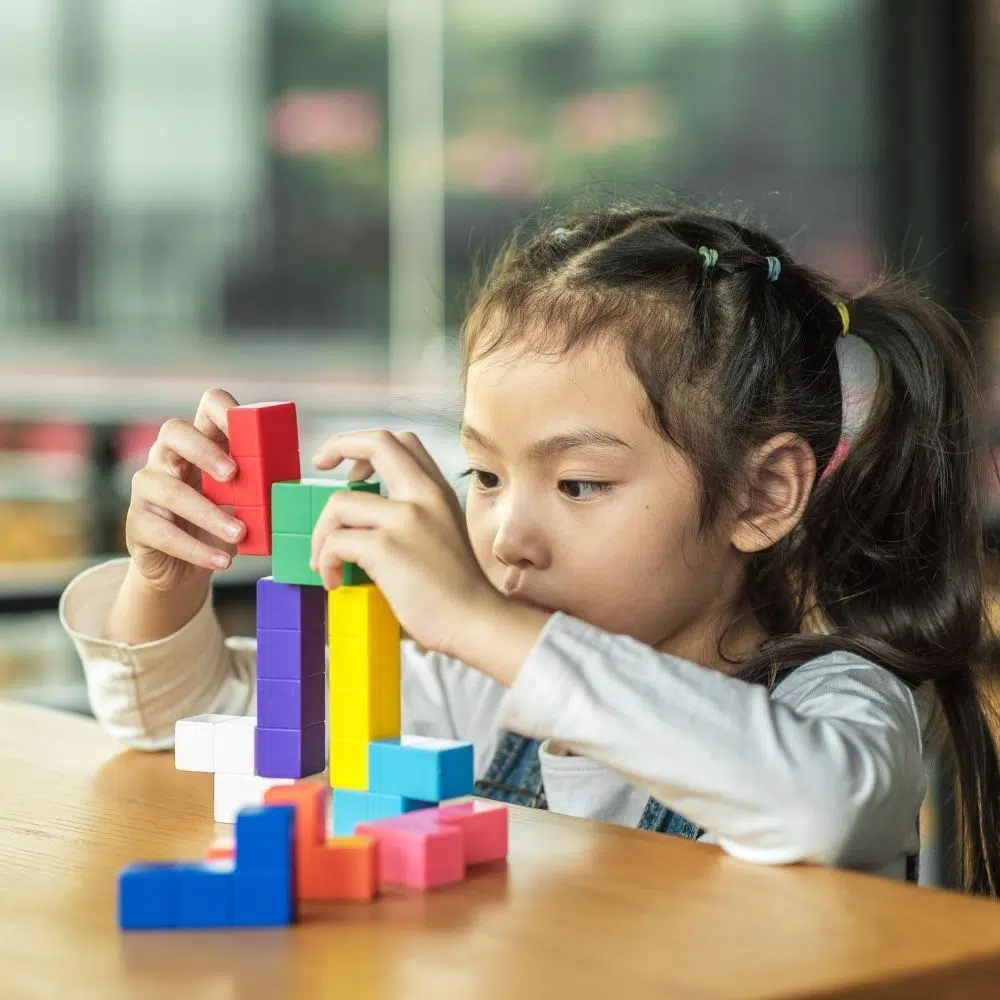Quality playtime for children isn’t just a great way to pass the time with a fun activity. In truth, young brains socially and mentally benefit from playing with themselves, parents, and other children. Additionally, poor play habits may stunt the growth of essential building blocks that set our kids up for success down the line. Here is how proper play habits affect your child’s development.
Mental
Every moment in a young child’s life reinforces mental development, and they carry these experiences with them throughout their lives. When it comes to playtime, children face various obstacles that require critical thinking, problem-solving, and memory skills.
As their playtime activities become more complex, kids further their critical thinking skills and implement them into their school and social lives. Play also promotes creativity, exploration, imagination, and sensory stimulation. These are all factors that contribute to well-adjusted adults.
Emotional
Do you remember the first time you lost a game of Monopoly to your family and all the emotions that followed? Playtime is the primary way for children to experience challenges and failure. This is the first time they face grief, sadness, and anger, and through further play, they must learn to process these emotions.
As their lives become more complex and stressful, kids use coping skills they learned from playing to deal with issues and remain functional and adjusted. Alternatively, they experience the joys of winning and gratification!
Physical
Not all development occurs in the brain, as physical activity is essential for instilling healthy living habits. With childhood obesity on the rise in America, children need to receive 30 to 60 minutes of exercise daily. Good playtime allocates time for physical activity each day that your child looks forward to, reinforcing healthy behaviors.
For young children, playtime builds fine motor skills, including balance and dexterity. Play also builds gross motor skills, such as body awareness and flexibility. This is especially important with neuro-divergent children who may have physical disabilities. Physical activity also teaches children consequences and danger as they rough house or play recklessly on a playground.
Social
Playing with your children, especially when they are young, builds strong bonds between the two of you. These emotional connections are linked to better social skills in their later years. As they age, it’s important to let kids play with their friends, further strengthening their social abilities. As problems arise during play, children work together with their friends and build teamwork and communication skills.
It’s also vital to allow independent playtime for children, enabling them to be prepared for separation. Separation anxiety is detrimental to social skills, so some alone time while playing helps them as they age.
Knowing how proper play habits affect your child’s development allows you to set aside adequate time each day for your kids to explore, problem-solve, and make friends. Playtime is a safe space for children to practice dealing with problems that will arise in their later years.
Image Credit: #325279989 kid girl playing toy blocks. Concept of child meditation




Comments